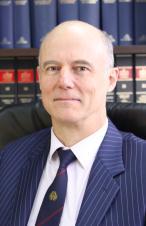Contact Us
KOGARAH OFFICE
Suite 309 – 310, Level 3
13A Montgomery Street
KOGARAH NSW 2217
SYDNEY CITY OFFICE
Ground Floor
54 Martin Place
SYDNEY NSW 2000
Email: solicitors@gmhlegal.com
Phone: (02) 9587 0458
Facsimile: (02) 9587 2936
THE ROLE OF THE EXECUTOR
The essence if the role of the Executor is to put the wishes of the testator into effect by collecting assets, paying liabilities and distributing the testator’s property to those the testator wished to benefit.
An Executor is responsible for:
- Finding the will
- Arranging for disposal of the body
- Getting the death certificate from the Registry of Births, Deaths and Marriages
- Ascertaining the deceased’s assets and liabilities
- Obtaining probate (or Letters of Administration)
- Paying the deceased’s debts, income tax, duties and funeral expenses
- Distributing the assets according to the terms of the will
When making a Will, choosing the right Executor is an important decision. The duties of an Executor can be difficult, demanding and time consuming. In most cases, an Executor will require legal or other professional representation, which involves costs and liabilities to the estate.
The chosen Executor should be aware of the legal responsibilities and have some understanding of accounting, business practices and taxation matters – particularly where capital gains tax is applicable. They should also understand that they are financially liable for any mistakes they make in their administration of your estate.
Family conflict can often come into play when administering an estate, resulting in accusations of favouritism towards some beneficiaries over others.
OBTAINING A DEATH CERTIFICATE
Usually the funeral director arranges registration of the death and all the Executor needs to do is complete a death certificate application form, identifying himself/herself and stating the reason for requesting the death certificate.
The death certificate will be required to perform the following tasks:
- Claiming insurance
- Claiming superannuation
- Drawing on the deceased’s bank account
- Claiming for funeral benefits
At GMH Legal we suggest that you make a number of photocopies of the death certificate and have each one certified as a true copy of the original by an authorised person.
Please note that the original death certificate is required to make an application for probate or for Letters of Administration (i.e. if the testator died without a will).
For more information about obtaining a death certificate, please visit the website of the Registry of Births, Deaths and Marriages.
ASCERTAINING THE DECEASED’S ASSETS AND LIABILITIES
Before applying for probate, the Executor must carry out some investigation work which includes locating the deceased’s assets and liabilities, assessing the value of their assets and finding out what asset-holding institutions require before they will release funds.
The initial task of locating assets and uncovering debts involves writing to the asset-holders and creditors asking for details of the assets and debts and their requirements for release.
APPLICATION FOR PROBATE (OR LETTERS OF ADMINISTRATION)
Probate is an order from the Supreme Court stating that the will has been proved to be the last valid will of the deceased and allowing the executor to collect and distribute the Estate in accordance with the terms of the will.
Please note that you can only apply for Probate through a Solicitor, a trustee company, the NSW Trustee and Guardian.
The steps to apply for Probate are as follows:
- Public an intention to apply for Probate on the Supreme Court Online Registry.
- File a Summons at the Supreme Court of New South Wales
- File an Affidavit (sworn statement) of Applicant at the Supreme Court of New South Wales. including: the death certificate, a copy of the will, a copy of the online advertisement, an inventory of the deceased’s assets and a list of their liabilities.
When applying for probate the Executor will need to pay for a filing fee. This fee depends on the value of the estate
If the Probate application is successful, the Executor will receive a letter stating that he/she can carry out the terms of the will.
WHAT IF THE DECEASED DID NOT LEAVE ANY WILL?
Letters of Administration are a Court order that allow an estate to be administered when there is no will. Once the proper enquiries show that no will has been left, once of the eligible relatives can apply for Letters of Administration.
The steps to apply for Letters of Administration are as follows:
- Public an intention to apply for Letters of Administration on the Supreme Court Online Registry.
- File a Summons at the Supreme Court of New South Wales
- File an Affidavit (sworn statement) of Applicant for administration at the Supreme Court of New South Wales, including: the death certificate, a copy of the online advertisement, an inventory of the deceased’s assets, a list of their liabilities, a form of identification of the deceased’s relatives (marriage/birth certificates etc.)
PAYING THE DEBTS, INCOME TAX, DUTIES AND FUNERAL EXPENSES
Any people or businesses that the deceased owed money to must wait until the assets have been collected before they receive payment.
The Executor must first pay for the funeral expenses before making any payment to potential creditors. Please note that if the deceased did not have enough assets to cover the costs of funeral expenses, the surviving members of the deceased’s family who authorised the funeral arrangements will be responsible for the costs.
In the event the deceased has more debts than assets, the Estate will be dealt as if the person had been bankrupt. In this situation, the Executor plays no part in the administration of the Estate.
DISTRIBUTING THE ASSETS ACCORDING TO THE TERMS OF THE WILL
Once the deceased’s assets have been collected and any outstanding debts cleared the Executor can begin to distribute the proceeds or transfer specific assets according to the instructions in the will or the intestacy rules.
Items such as personal belonging may be distributed soon after the person’s death, once their value has been assessed.
Please note that once an Executor receives a notification that an application for a Family Provision claim has been filed, he/she must preserve the estate and restraint from distributing any asset or share from the estate.
If the Executor proceeds with the distribution of shares and assets of the estate after a receiving a notice of application for a Family provision claim, he may be held personally liable for any loss suffered by the applicant.
DUTIES OF THE EXECUTOR : DUTY TO THE COURT
The executor has a duty to provide information to the Court when requested, concerning the deceased’s estate.
You will need to provide that information in an Affidavit (sworn statement).
The information requested from you by the Court may include:
- A copy of the deceased’s Will and the probate or letter of administration if granted
- A description of the nature and value of the assets and liabilities of the deceased at the date of death
- What is, or likely to be, the nature and an estimate value of the assets and liabilities of the deceased at the date of swearing the Affidavit and any property of the deceased that has been distributed at any time after the death of the deceased and the date of the distribution of that property and the gross distributable estate (omitting the costs of the proceedings)
- A description of the nature and an estimate of the value of any property which, in the administrator’s opinion, is or may be the subject of any prescribed transaction or relevant property transaction.
- The name and address of every person who, in your opinion, is holding property as a trustee, or otherwise which is, or may be, the subject of any prescribed transaction or relevant property transaction.
- Any testamentary and other expenses, or other liabilities of the estate that have been paid out of the estate of the deceased, including the amount, if any, paid form or on account of, the administrator’s costs of the proceedings,
- Whether any commission is to be sought by you (the administrator), and if so, an estimate of the amount proposed to be sought
- The names and address of every person who, in your opinion is, or who may be an eligible person, an eligible person under a legal incapacity, a person beneficially entitled to the distributable estate, a person holding property as trustee or otherwise
For more information please refer to the Law Society’s CLE paper titled
‘Family Provisions Claims under the Succession Act 2006 (NSW) publication.
DUTIES OF THE EXECUTOR : DUTY OF CARE
The executor must at all times act with care and, in the interest of the beneficiaries, must endeavour to administer the estate in accordance with any direction or power in the will as quickly as possible, including distribution to the beneficiaries.
Please note that the executor may be liable in damages to beneficiaries for negligence in respect of any avoidable delay which results in loss to the beneficiaries either in relation to lost investment income or a lost opportunity to invest.
DUTIES OF THE EXECUTOR : DUTY TO VALUE THE ESTATE
The Executor has a duty to value the estate and provide the estate with recent list of assets and liabilities.
The estate includes all:
- Cash
- Business interest
- Personal effects
- securities
- Real estate
- Sale of property
- Debts due
- Debts owing
DUTIES OF THE EXECUTOR : DUTY AS TO SEPARATE REPRESENTATION
The executor has a duty to the beneficiaries to act in their best interests at all times. He/she must avoid a conflict of interests between his/her own interests and that of the beneficiaries.
In the event you are the executor of a will in addition to being a beneficiary of the will, you will be considered to be acting in ‘dual capacity’.
If this scenario applies to you, you should apply to the Court for separate representation.
Call the experienced team at GMH Legal to assist you in your matter.
A free consultation with GMH Legal is an opportunity to gain deep insights into your legal situation and all of your options.
Why Choose GMH Legal?
- Over 60 years of combined legal experience
- Outstanding track record with a winning approach
- First appointment is always free
- Meet our team now.






